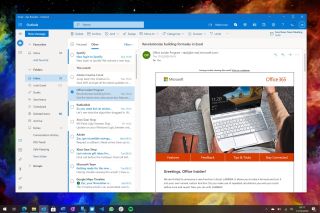Some people naturally organize. They live their lives putting belongings away, creating systems and minimizing clutter. However, following routines and maintaining order isn’t a natural habit for many others. That genetic gift isn’t bestowed on everyone. To practice organization, know that it takes time to form this skill and be patient with yourself. Learning how to stay organized could help you know where things are and reduce wasted time.
Here are some tips for working on particular characteristics to strengthen your weaker areas and learn to become structured and neat.
Take Care of Yourself First
Obtaining organization skills can bring lots of benefits to your life, but first you need to be aware of your own situation and health. A reason behind the clutter around you or difficulty to stay organized may be because you are struggling to prioritize your health. WebMD states that clutter and stress are linked. If you are looking for ways to prioritize your health in order to get your life more organized, try eating healthy and getting outside to enjoy the sun. Some other things that could help you are taking vitamins, exercise, and listening to music. Taking care of your health is also a great opportunity to teach your kids about their health as well. Encourage them to take their kids vitamins and participate in the healthy activities you’re pursuing. You could find that as you take care of your health, staying organized will come more easily.
Eliminate the Excess
Begin by learning that less is more. You don’t need to keep everything. There is a time and place for specific times. When they’re worn or have outlived their youth, it’s time to move on from those pieces. Give items a new home, throw out the trash and maintain what serves its purpose.
Declutter the home and office. Go through drawers and cabinets, determining what offers value and what is collecting dust. Create piles for what you need and what you don’t. Then, make homes for like materials.
Bring order to these messy zones as you do it. Have you forgotten about some of your food in the fridge or freezer? Group the food categories together and keep track of what you buy to avoid waste. Now is a good time to throw out food that has expired and defrost any food from the freezer that you want to use. You can also meal prep each week to stay focused on what you’ll be using and eating.
Use a Calendar and Lists
Keep on top of those routines and schedules by writing out the information. While technology is great, the visual representation is nice to have. Plus, studies published on ScienceDaily.com emphasize that writing on paper triggers brain activity, boosting memory function. If you constantly forget what to do or want a few extra reminders, grab a to-do list notebook and get started. Write out the chores you want to be done by the end of the day, and make weekly goals for getting organized.
Tag Team Habits
The New York Times online notes it’s hard for people to create habits. The source recommends building a new practice onto an older one. Why is that? You’re used to doing one thing already. For instance, do you wash your face in the evening? You could use this time to write a reflection journal or gratitude entry. Are you constantly grabbing fruit from the fridge around lunch? Make it a good time also to add a glass of water. Practice the two together until they both become instinctual.
Go Slow
Life is fast-paced, but you don’t need to go 10 miles over every minute’s speed limit. Doing something too quick is likely to cause problems. Things become rushed with details left out. You leave the counter dirty. The clothes get strewn about. Avoid these signs of disorganization by taking your time and focusing on one task before moving on to something else.
Plan Ahead
Those quick activities often happen because you feel anxious or tight on time. Did you wait until you had to do something, or did you consider it a few hours or days ahead? Planners contemplate how much time they need to do something well.
Practice adding buffer time to your agenda. Do you want to get somewhere and leave the house clean? Organizers don’t wait until right before they head out to get everything settled. They devote effort and energy to thinking through what they need, how to get there and the timeframe for completing the task.
For instance, do your kids have a soccer game at 5? Get ready 10 minutes sooner and use that time to move about and pick up the items on the tables and floors. Have your little ones go through their equipment when they get home from practice, putting it all back together for the next game. This act instills organization for them and could alleviate that last-minute search for a ball or cleats.
It’s okay that you’re not a natural organizer. You don’t have to be. However, you can learn the skills by changing your mindset and habits. Think ahead about what you want to accomplish and establish a reasonable schedule to make it happen.















